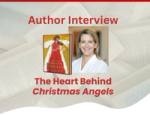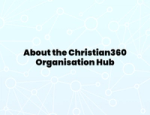Why I am no longer not a Catholic
Edward Green
Priest and blogger Edward Green on why he embraces a catholic faith
Anita Mathias is one of my favourite bloggers, blending theology, faith and personal reflection together. Anita was raised (Roman) Catholic where in her own experience she found very little sustenance. Anita has blogged about her experience here.
Personal journeys are always difficult to debate. They are emotional and intimate and inevitably can go both ways – I know pentecostals who grew up catholic and catholics who grew up pentecostal. My own journey to a more catholic faith can be summed up best as:
- An assurance of the supernatural action of God, through faith filled participation in the sacraments.
- A liturgical expression of worship that teaches the faith.
- Continuity with the Spirit's work in the church over 2000 years and especially with the earliest Christians.
- Solidarity with the church on earth and in heaven.
I cannot defend every action and doctrine of the Roman Catholic Church. If I did I would be Roman Catholic. But I can defend a broader family of faith that includes sacramental Christians from East and West.
Confession
The scriptural basis for this sacrament is found in the words Jesus shares with the eleven as he ordains them with apostolic authority.
Jesus said to them again, "Peace be with you. As the Father has sent me, so I send you." When he had said this, he breathed on them and said to them, "Receive the Holy Spirit. If you forgive the sins of any, they are forgiven them; if you retain the sins of any, they are retained." John 20:21-23
I have reflected on different approaches to dealing with sin and confession in The Seal of Love.
Yet my suspicion is that actually the most damaging sins that beset us are not the ones that we are aware of, but those we do not see so clearly. Which is why we are encouraged to examine ourselves and confess our sins, which is why we have been given the sacrament of reconciliation. It is in that sacrament that I have experienced what Mark describes, that unveiling of the dark hidden places, but principally in my own heart and my own life. Yes, sometimes when someone comes to me for confession I already know what they are going to say. Sometimes I might encourage someone to seek the sacrament. But it is sealed; it is a path of repentance, restoration and forgiveness. It is not to be broadcast and paraded; it is too precious, too personal, and too intimate for that.
Prayer for the Dead
Although I am not in favour of donations for masses I do think it is right and proper to pray for the dead. The biblical example commonly cited is Paul's prayer for the late Onesiphorus.
May the Lord grant mercy to the household of Onesiphorus, because he often refreshed me and was not ashamed of my chain; when he arrived in Rome, he eagerly searched for me and found me —may the Lord grant that he will find mercy from the Lord on that day! And you know very well how much service he rendered in Ephesus. 2 Timothy 1:16-18
However the theological underpinnings are deeper than one proof text. The church is not just made of the living, but of the living and the dead. We pray for the church on earth, but we also pray for the church penitent.
"Of course I pray for the dead. The action is so spontaneous, so all but inevitable, that only the most compulsive theological case against it would deter me." C.S. Lewis, Letters to Malcom
This of course assumes a purgatorial experience between earth and heaven for many of us, a view held by Lewis and others as I explored in Purging Fire.
The Real Presence
Christ present in bread and wine has been Christian Orthodoxy for 2000 years. The first reformers reframed that understanding, but Luther and Calvin both saw holy communion as more than a memorial. Many Christians have also understood communion to be in some form an offering or a sacrifice. The witness from the first Christians is strong; they understood Christ's words at the last supper as they understood the resurrection - in a literal rather than metaphorical way. To take a quote from my reflections on St. Ignatius
Take note of those who hold heterodox opinions on the grace of Jesus Christ which has come to us, and see how contrary their opinions are to the mind of God. . . . They abstain from the Eucharist and from prayer because they do not confess that the Eucharist is the flesh of our Saviour Jesus Christ, flesh which suffered for our sins and which that Father, in his goodness, raised up again. They who deny the gift of God are perishing in their disputes. (St Ignatius of Antioch)
The Saints
If the church is more than just those on earth, if we are called to prayer for the church, then it follows that we can ask the church to pray for us. Those who have led holy inspiring lives are recognised by the church as saints - they are not made saints by the church. I do not consider it any stranger to ask St. Francis for my prayers than my neighbour in the pew.
The book of Revelation declares the intercession of the saints, who in the early church were martyred for their faith.
When he opened the fifth seal, I saw under the altar the souls of those who had been slaughtered for the word of God and for the testimony they had given; they cried out with a loud voice, 'Sovereign Lord, holy and true, how long will it be before you judge and avenge our blood on the inhabitants of the earth?' Revelation 6:9-10
It is my hope that the church on earth can join with that intercession.
The Rosary & Liturgy
The role of Mary in the economy of salvation is deep and complex, as I explored in Mary: Graced, Gate, Lens, Ark & Mother.
The spiritual benefits of repetitive forms of prayer such as the Jesus Prayer or Hail Mary are complex too, as anyone who prays devotionally in tongues can confirm. I would suggest they are the same gift, which for some can open up intimacy with God. This form of prayer is part of my own spirituality in various forms.
Liturgical prayer and worship can become a vain repetition, but so can the singing of hymns and worship songs, or almost identical extempore prayers. It is the responsibility of those who pray and worship to engage fully with the words and thoughts they offer.
Mere Christianity
C.S. Lewis coined the term Mere Christianity, and submitted the text to Anglican, Methodist, Presbyterian and Roman Catholic clergy to find broad agreement. Lewis' writes:
"You will not learn from me whether you ought to become an Anglican, a Methodist, a Presbyterian, or a Roman Catholic. This omission is intentional. There is no mystery about my position...the best service I could do was to explain and defend the belief that has been common to nearly all Christians at all times" (Mere Christianity)
Lewis himself embraced many aspects of catholic faith, especially in his private 'Letters to Malcolm'. Mere Christianity may be a shared starting place between different Christians but for me, as it was I suspect for Lewis, there are depths beyond it. In a broad catholic tradition I have begun to taste of those depths, in spirituality, in understanding scripture and in being united with the very first Christians.
Edward Green is a Church of England Priest based in Oxfordshire. He blogs regularly at The Future Shape of Church.
Latest Blogs

Advent Devotional
The Heart Behind Anne Neilson's Christmas Angels | Author Interview
Anne Neilson shares the story and heart behind her new Advent devotional - Christmas Angels.

Christian360
What is Christian360?

Christian360
About the Christian360 Organisation Hub
About the Christian360 Organisation Hub

Bible Guide
Download Our Free Guide: How to Choose Your Bible (2025 PDF)
Feeling overwhelmed by Bible translations (NIV, NLT, ESV)? Download our free 97-page guide on "How to Choose Your Bible" and find the perfect one for you.

Bibles
Dyslexia-Friendly Bibles: A Guide to Accessible Scripture (2025)
Inspired by Bloomsbury's announcement? Discover the best dyslexia-friendly Bibles, with accessible fonts, layouts, and translations like the GNB to make reading easier + Get your Free 97-page Bible Buying Guide

Bibles
The 5 Bestselling Bible Translations: A Simple Comparison (2025 Guide)
NIV vs. NLT vs. ESV vs. KJV vs. NKJV: What's the difference? Our simple guide explains each bestselling Bible translation to help you choose the right one + Get your Free 97-page Bible Buying Guide
